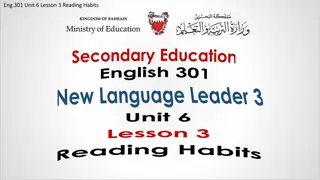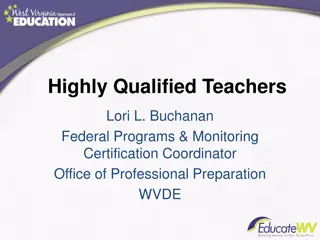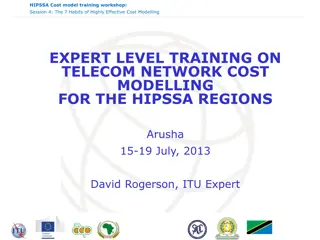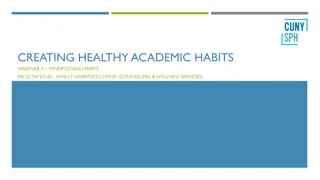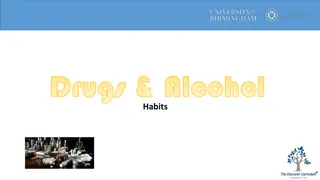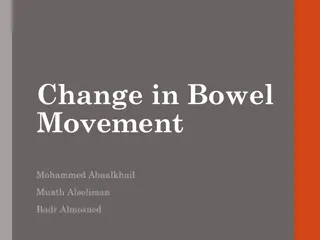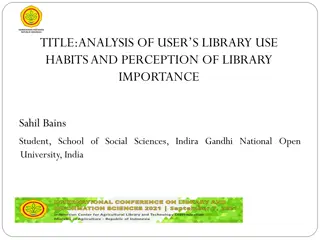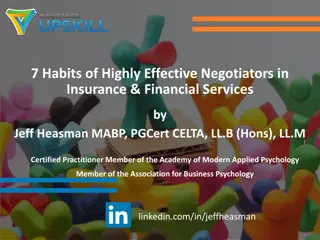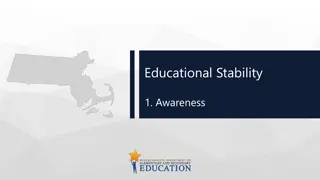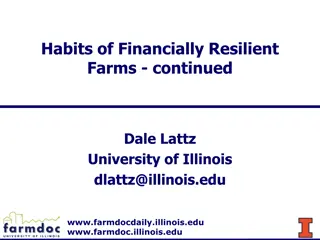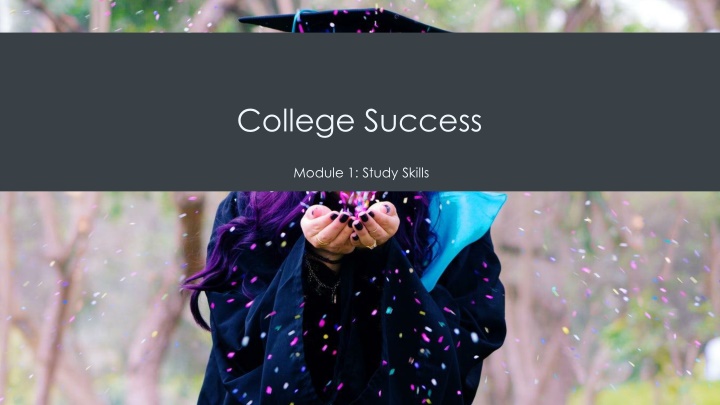
Effective Study Skills and Strategies for College Success
Enhance your study skills and test-taking strategies with effective methods like Spaced Practice, Interleaving, Dual Coding, and Retrieval Practice. Learn how to ask, explain, and connect ideas, avoid cramming, spread out study sessions, and switch between subjects to boost your academic performance.
Download Presentation

Please find below an Image/Link to download the presentation.
The content on the website is provided AS IS for your information and personal use only. It may not be sold, licensed, or shared on other websites without obtaining consent from the author. If you encounter any issues during the download, it is possible that the publisher has removed the file from their server.
You are allowed to download the files provided on this website for personal or commercial use, subject to the condition that they are used lawfully. All files are the property of their respective owners.
The content on the website is provided AS IS for your information and personal use only. It may not be sold, licensed, or shared on other websites without obtaining consent from the author.
E N D
Presentation Transcript
College Success Module 1: Study Skills
Take the first 10 minutes of class and answer the following question on a piece of paper for discussion later in class: What are 2 study skills and 2 test taking strategies that have made you most successful in school so far?
How to Study Effectively for School or College (Watch the video below and take notes) https://youtu.be/CPxSzxylRCI
ANSWER Method: For effective study skills Ask, Explain and Connect Ideas No cramming: Spaced Practice Switch subject matter: Interleaving Words with visuals: Dual Coding Examples: Specific, concrete examples Recall what you know: Retrieval Practice
Ice Breaker: Study Skills Discussion 1. What are 3 examples of how you could use the ANSWER method to be successful in your future courses? 2. Why is it important to use Spaced Practice when you are at home studying? 3. What are ways that you will practice Recalling information while studying?
Ask, Explain and Connect Ideas: Elaborate Connect ideas with your daily experiences Create how and why questions to know how they are similar and difference Make a list of ideas you need to learn Look for answers to your own questions in the learning material
No cramming: Spaced Practice Spread your study time out Schedule short study sessions No interruptions in small study sessions
Switch subject matter: Interleaving Be able to jump between ideas and know how they relate to each other Make links between ideas as you move between them On the next study session change orders of how you study different ideas
Words with visuals: Dual Coding Look at visuals and explain in your own words what they mean Use your own words to describe a visual You learn best when you combine words and visuals
Examples: Use Specific, Concrete Examples Use concrete instead of abstract Use past experiences to help explain, learn and remember things Are your examples accurate and relevant to the material you are learning
Recall What You Know: Retrieval Practice Put away all of your textbooks and recall what you already know Practice recalling information often Focus your study time on the information that you can t recall Use practice tests multiple times Check your knowledge against course material
Common Types of Tests in College 1. Pre-Assessment 2. Multiple Choice Assessment 3. Fill-in-the-Blank Assessment 4. Essay Assessment 5. Group Assessment 6. Verbal Assessment What is the purpose of testing?
Strategies for Answering Questions Test Taking Strategies: Take a deep breath and relax Remember that you have studied and be confident in what you know Look at entire test before you begin Ask any questions you have before you start Budget your time based on time per question Watch for key testing words like analyze, define, evaluate, and illustrate Look over your exam before you are finished
Test Anxiety Strategies for preventing and controlling test anxiety: 1. Ask about the exam 2. Take inventory of your notes 3. Set a study schedule 4. Keep your diet consistent 5. Don t stop exercising 6. Get regular sleep 7. Make a five-day study plan for each exam
Complete the following before next class: Assignment: The 6 Habits of Highly Successful Students Assignment: Testing Strategies Web Only: Study Skills Discussion Board



